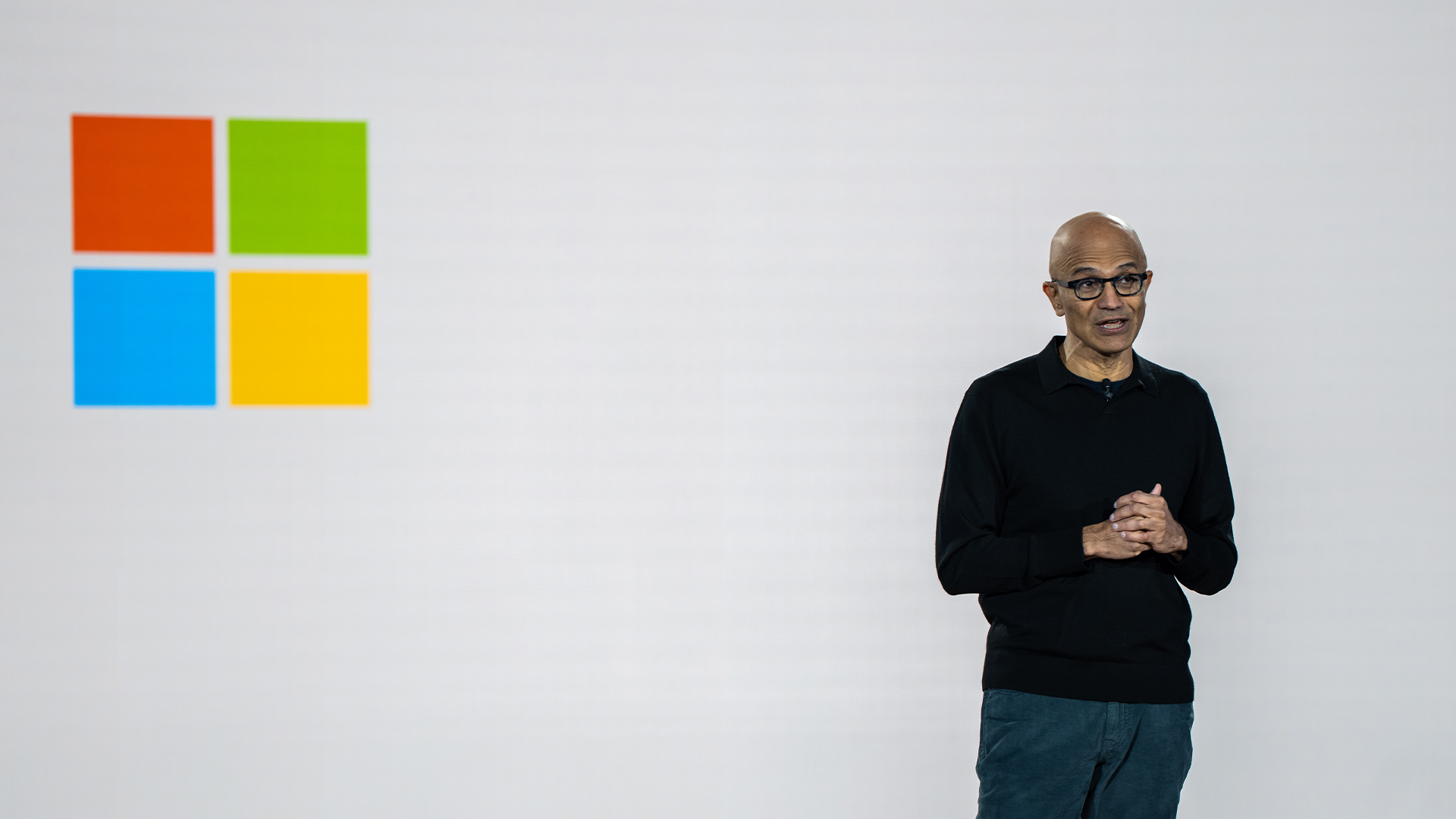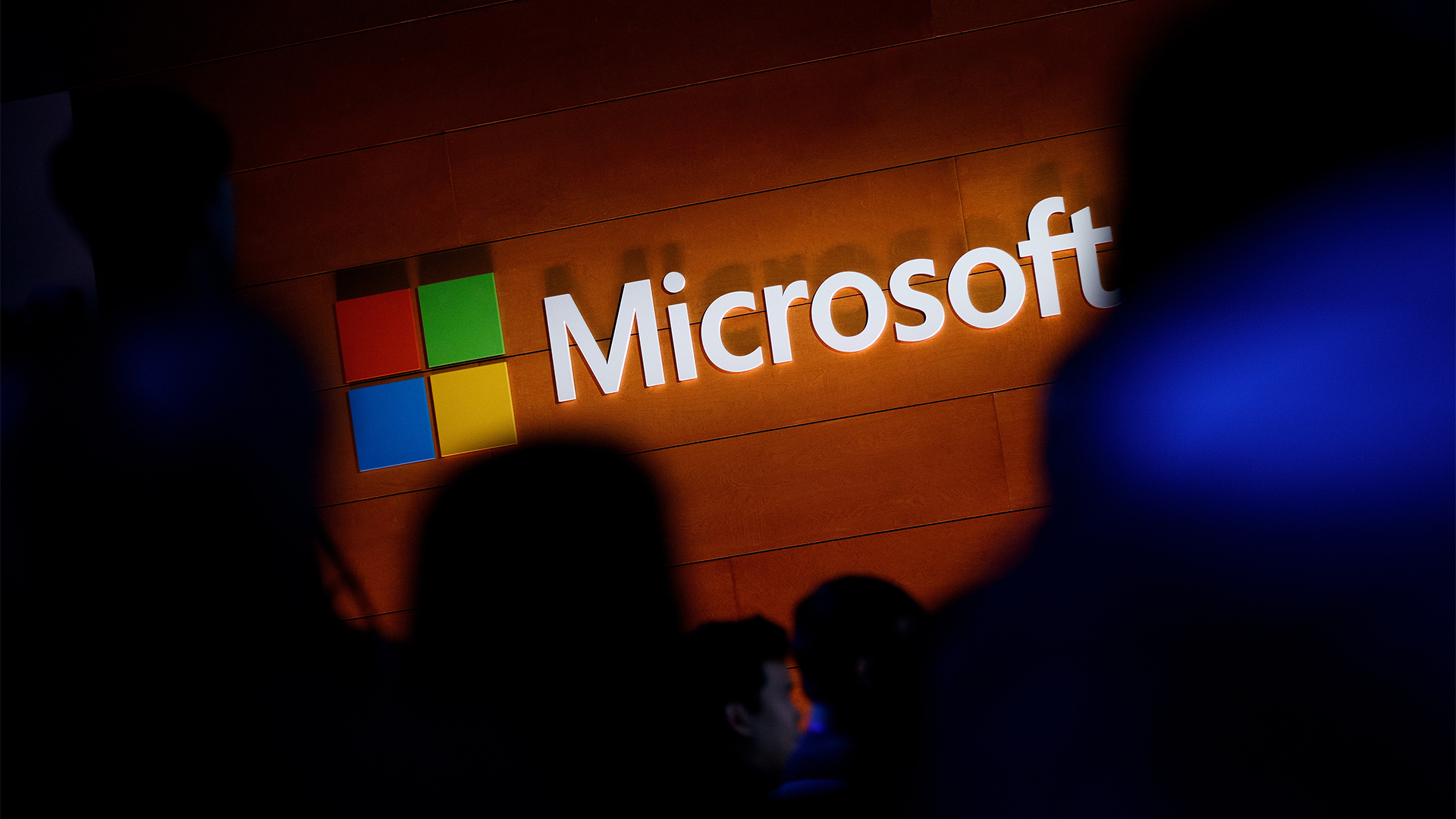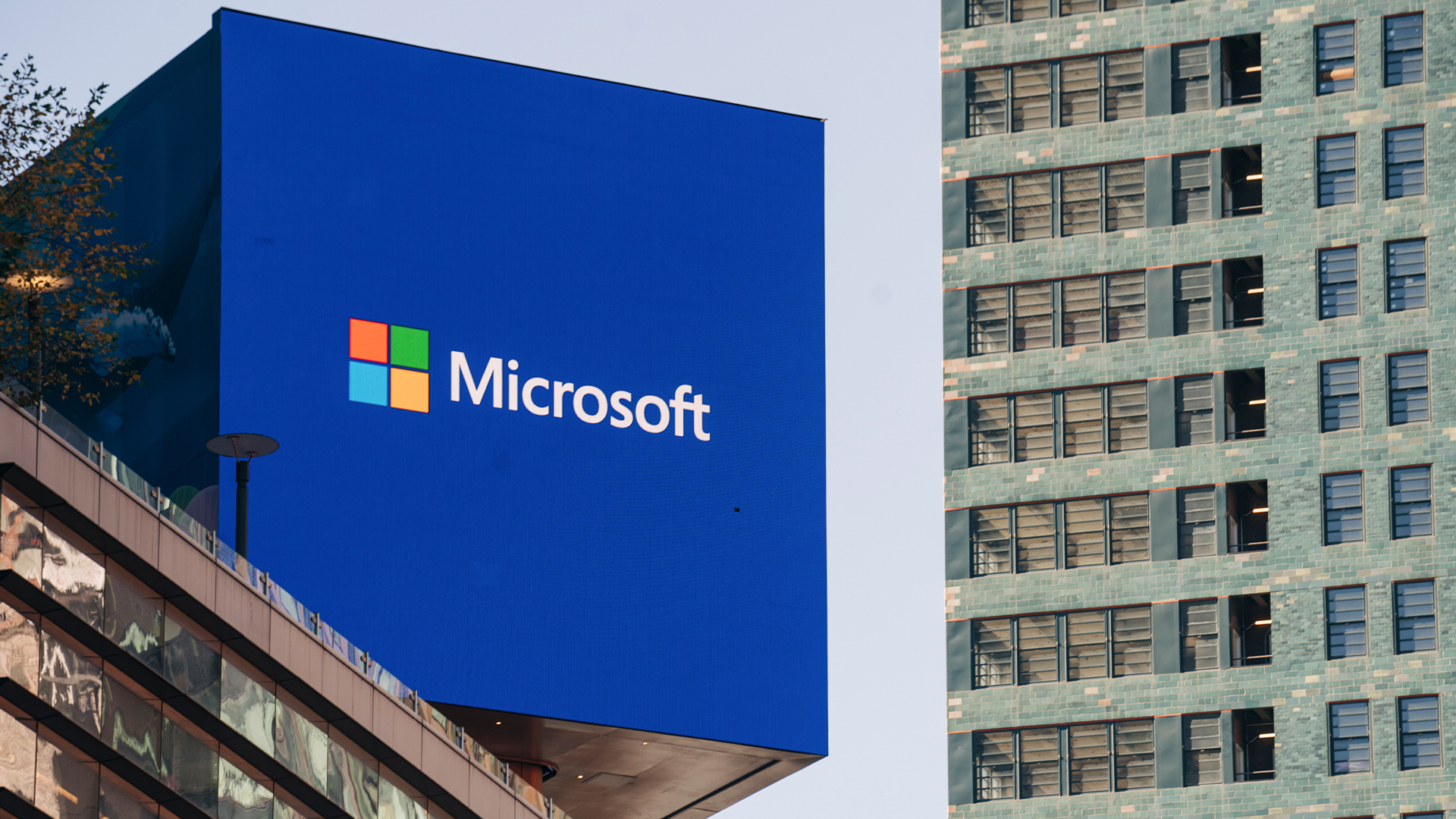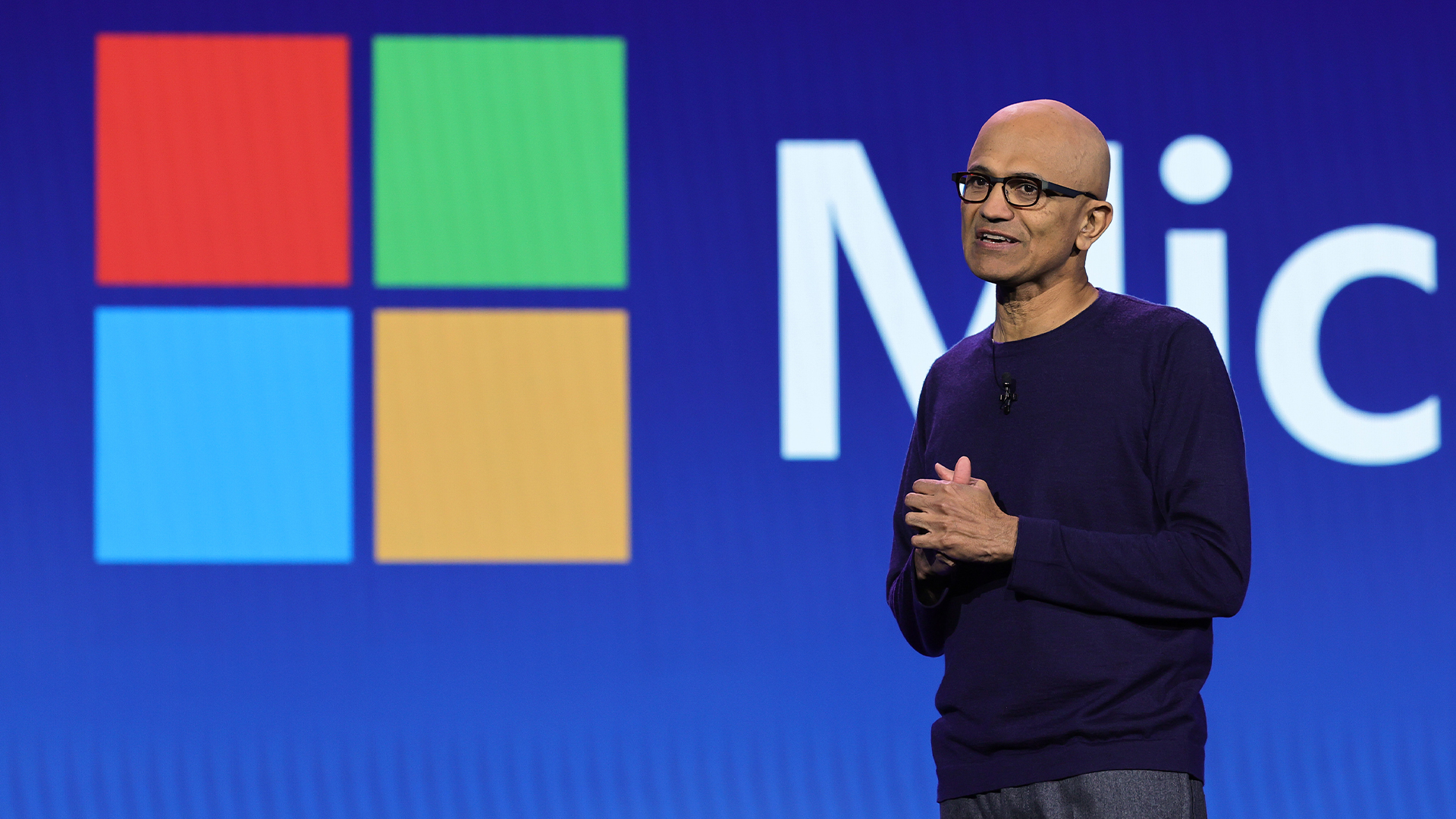Microsoft is hell-bent on making Windows an ‘agentic OS’ – forgive me if I don’t want inescapable AI features shoehorned into every part of the operating system
We don’t need an ‘agentic OS’ filled with pointless features, we need an operating system that works


Sign up today and you will receive a free copy of our Future Focus 2025 report - the leading guidance on AI, cybersecurity and other IT challenges as per 700+ senior executives
You are now subscribed
Your newsletter sign-up was successful
It’s official. Windows is on the path to becoming a fully ‘agentic OS’, according to Microsoft.
For those keeping tabs on the evolution of the operating system, this won’t come as much of a shock. The tech giant has been highly vocal about its intention to weave an expanding array of AI features into the fiber of Windows.
The torrent of Copilot integrations came first, then Recall had users in revolt. Now, with agentic AI the latest big industry trend, it’s going to get a full makeover.
Windows chief Pavan Davuluri has been waxing lyrical about the long-term plan for Windows, touting a “multimodal” future where AI picks up the slack for users, snooping its way through files and running seamlessly in the background.
At the company’s annual Ignite conference this week, customers were given an insight into how the operating system is evolving. A new support guide, for example, outlines a range of agentic AI features coming to Windows 11.
While these are “experimental” right now, members of the Windows Insider program will be given a first glimpse.
Central to the new approach is the launch of an ‘Agent Workspace’, which Microsoft describes as a “separate, contained space in Windows where you can grant agents access to your apps and files”.
Sign up today and you will receive a free copy of our Future Focus 2025 report - the leading guidance on AI, cybersecurity and other IT challenges as per 700+ senior executives
Folders and files accessible by agents will include user downloads, videos, pictures, music, and an array of documents stored on any given device. Simply put, you’ll now be able to delegate tasks and hand the reins – or at least a portion – to an AI agent so they can “complete tasks for you in the background” while you’re working away.
Microsoft is keen to emphasize there will be clear boundaries for agents. For example, each agent uses a dedicated “account” which is distinct from a personal user account.
This will ensure “scoped authorization and runtime isolation,” the company noted.
“As a result, you can delegate tasks to agents while retaining full control, visibility into agent actions, and the ability to manage access at any time.”
Who is this actually for?
It’s a bold vision, but has left me wondering exactly who this is going to benefit?
In the consumer market, I’m skeptical that the agentic Windows experience will have any tangible benefit for users. Packing an operating system with an array of agents, bots, and various AI tools seems like overkill and will merely pester everyone to the point of madness.
Windows 11 upgrade and Copilot notifications were bad enough, I dread to think what an agentic OS will be like when constantly encouraging you to try out these shiny new features.
Admittedly, there’s value here for enterprises. On-device AI capabilities will align perfectly with the plans many IT leaders are pushing at present, while equipping every individual worker with agentic tools sounds like a ‘two birds with one stone’ pitch to a board wondering where the money is going.
If we’re being really nitpicky, from an accessibility perspective it also makes sense. No more scouring back through documents and various folders to find what you’re looking for. Let an agent do it and bingo!
But the potential gains unlocked by an agentic operating system are mirrored by the new risks that come with fusing the technology on every Windows device.
Cyber professionals are already voicing concerns about the various security and privacy-related implications of agentic AI, and in terms of governance the outlook is even more dire.
With employees now working with devices boasting agentic operating systems, that simply adds another layer of complexity and new headaches for those charged with securing enterprise data and IP, regardless of the promises Microsoft has made on the security front.
No stopping now
It’s baffling why Microsoft appears so hellbent on pushing these changes despite clear signs from consumers that they’d prefer the company to stick to the basics.
Davaluri sparked a backlash on social media earlier this month when promoting a session at the Ignite conference on the Windows agentic OS drive. Users rightly questioned why it’s focusing so heavily on this when they just want better reliability and performance.
From a developer point of view, Gergely Orosz, software engineer, author, and curator of the Pragmatic Engineer newsletter, noted the move could alienate developers using the OS.
From a developer point of view, Gergely Orosz, software engineer, author, and curator of the Pragmatic Engineer newsletter, noted the move could alienate developers using the OS.
Why would you want to cede a degree of control here? If in doubt, Linux awaits.
To add insult to injury, Microsoft AI CEO Mustafa Suleyman took to social media this week to push back on the criticism from consumers, suggesting there are “so many cynics”.
"I grew up playing Snake on a Nokia phone! The fact that people are unimpressed that we can have a fluent conversation with a super smart AI that can generate any image/video is mindblowing to me,” he wrote.
It’s hardly surprising that the company is encountering these so-called “cynics”.
Microsoft is top of the perch, why bother? Because it, like other industry counterparts, is caught up in another hype cycle and is scrambling for ways to pack its new features into every aspect of the user experience.
Customers have been bombarded with an overwhelming volume of agentic AI announcements spanning all key business segments, from Azure to Microsoft 365 and beyond.
If Microsoft focuses on the basics once more it can win them back over – and maybe by the time Windows 12 comes around, it won’t take the best part of a decade for the operating system to overtake its predecessor in popularity.

Ross Kelly is ITPro's News & Analysis Editor, responsible for leading the brand's news output and in-depth reporting on the latest stories from across the business technology landscape. Ross was previously a Staff Writer, during which time he developed a keen interest in cyber security, business leadership, and emerging technologies.
He graduated from Edinburgh Napier University in 2016 with a BA (Hons) in Journalism, and joined ITPro in 2022 after four years working in technology conference research.
For news pitches, you can contact Ross at ross.kelly@futurenet.com, or on Twitter and LinkedIn.
-
 Hackers are pouncing on enterprise weak spots as AI expands attack surfaces
Hackers are pouncing on enterprise weak spots as AI expands attack surfacesNews Potent new malware strains, faster attack times, and the rise of shadow AI are causing havoc
-
 Boards are pushing for faster returns on AI investments, and tech leaders can't keep pace
Boards are pushing for faster returns on AI investments, and tech leaders can't keep paceNews AI projects are now being held to the same standards as any other business investment
-
 If Satya Nadella wants us to take AI seriously, let’s forget about mass adoption and start with a return on investment for those already using it
If Satya Nadella wants us to take AI seriously, let’s forget about mass adoption and start with a return on investment for those already using itOpinion The Microsoft chief said there’s a risk public sentiment might sour unless adoption is distributed more evenly
-
 Satya Nadella says a 'telltale sign' of an AI bubble is if it only benefits tech companies – but the technology is now having a huge impact in a range of industries
Satya Nadella says a 'telltale sign' of an AI bubble is if it only benefits tech companies – but the technology is now having a huge impact in a range of industriesNews Microsoft CEO Satya Nadella appears confident that the AI market isn’t in the midst of a bubble, but warned widespread adoption outside of the technology industry will be key to calming concerns.
-
 Microsoft CEO Satya Nadella wants an end to the term ‘AI slop’ and says 2026 will be a ‘pivotal year’ for the technology – but enterprises still need to iron out key lingering issues
Microsoft CEO Satya Nadella wants an end to the term ‘AI slop’ and says 2026 will be a ‘pivotal year’ for the technology – but enterprises still need to iron out key lingering issuesNews Microsoft CEO Satya Nadella might want the term "AI slop" shelved in 2026, but businesses will still be dealing with increasing output problems and poor returns.
-
 Microsoft quietly launches Fara-7B, a new 'agentic' small language model that lives on your PC — and it’s more powerful than GPT-4o
Microsoft quietly launches Fara-7B, a new 'agentic' small language model that lives on your PC — and it’s more powerful than GPT-4oNews The new Fara-7B model is designed to takeover your mouse and keyboard
-
 Microsoft's new Agent 365 platform is a one-stop shop for deploying, securing, and keeping tabs on AI agents
Microsoft's new Agent 365 platform is a one-stop shop for deploying, securing, and keeping tabs on AI agentsNews The new platform looks to shore up visibility and security for enterprises using AI agents
-
 'It's slop': OpenAI co-founder Andrej Karpathy pours cold water on agentic AI hype – so your jobs are safe, at least for now
'It's slop': OpenAI co-founder Andrej Karpathy pours cold water on agentic AI hype – so your jobs are safe, at least for nowNews Despite the hype surrounding agentic AI, OpenAI co-founder Andrej Karpathy isn't convinced and says there's still a long way to go until the tech delivers real benefits.
-
 This new Microsoft tool lets enterprises track internal AI adoption rates – and even how rival companies are using the technology
This new Microsoft tool lets enterprises track internal AI adoption rates – and even how rival companies are using the technologyNews Microsoft's new Benchmarks feature lets managers track and monitor internal Copilot adoption and usage rates – and even how rival companies are using the tool.
-
 Satya Nadella says “our multi-model approach goes beyond choice’ as Microsoft adds Claude AI models to 365 Copilot
Satya Nadella says “our multi-model approach goes beyond choice’ as Microsoft adds Claude AI models to 365 CopilotNews Users can choose between both OpenAI and Anthropic models in Microsoft 365 Copilot